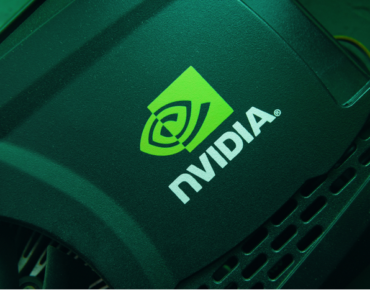Nvidia Acquires Software-Defined Storage Provider Excelero

Nvidia has announced that it has acquired Excelero. The high-performance block storage provider, founded in 2014, will have its technology integrated into Nvidia’s enterprise software stack. Nvidia is not disclosing the value of the deal.
Excelero’s core product, Excelero NVMesh, offers software-defined block storage via networked NVMe SSDs. NVMesh operates through networked drives on-prem or in private clouds and, last year, began to support Microsoft Azure as well. Over the years, Excelero accumulated $35 million in venture capital, most recently via strategic investment by storage giant Western Digital in 2018.
It sounds like NVMesh, however, won’t be long for this world in its current form. Nvidia told HPCwire that, while it will continue to support existing customer contracts in maintenance mode, future Excelero products will be discontinued. Further, Excelero branding will not be continued and Excelero will not operate as a standalone division. (Mellanox, also acquired by Nvidia, became Nvidia Networking but continues to operate as its own division of the company.)
 The talent and the tech, though, are another story entirely. Nvidia said that most of Excelero’s engineering team is joining Nvidia, and Excelero’s co-founders (CEO Yaniv Romem, VP of R&D Ofer Oshri and Chief Scientist Omri Mann) are similarly joining the Nvidia team, though specific roles have not yet been disclosed. Nvidia says that the majority of these employees will continue to work out of the company’s Tel Aviv headquarters.
The talent and the tech, though, are another story entirely. Nvidia said that most of Excelero’s engineering team is joining Nvidia, and Excelero’s co-founders (CEO Yaniv Romem, VP of R&D Ofer Oshri and Chief Scientist Omri Mann) are similarly joining the Nvidia team, though specific roles have not yet been disclosed. Nvidia says that the majority of these employees will continue to work out of the company’s Tel Aviv headquarters.
It is this expertise that Nvidia plans to use to integrate Excelero’s technology into its enterprise software stack. Nvidia aims to generally improve its data storage and data processing products, but also highlighted specific applications for Excelero-style block storage in supporting its HPC clusters and its DOCA software framework, which runs on Nvidia’s BlueField data processing units (DPUs).
Nvidia says that this latest acquisition is the culmination of years of collaboration, such as the investment made by Mellanox — since acquired by Nvidia — in Excelero in 2019. Nvidia and Excelero also previously collaborated on accelerating Excelero’s tech using remote direct memory access (RDMA), which Nvidia considers key to its InfiniBand and RoCE (RDMA over converged ethernet) networks.
“The Excelero team is joining NVIDIA as demand is surging for high-performance computing and AI,” said Yaniv Romem, CEO and cofounder of Excelero. “We’ll be working with Nvidia to ensure our existing customers are supported and going forward we’re thrilled to apply our expertise in block storage to NVIDIA’s world-class AI and HPC platforms,” he added.
Nvidia’s acquisition of Excelero marks another win for its increasingly diversified portfolio of assets as the GPU giant works to broaden its reach beyond components and into integrated systems and software. On the heels of the successful Mellanox networking acquisition (initiated in 2019), Nvidia had, of course, attempted to acquire processor power player Arm for $40 billion. Regulators, however, balked at the acquisition, and Nvidia was finally forced to terminate the maneuver just a month ago, thwarting its efforts to control a crucial piece of IP.
Nvidia seems to be chalking up some clearer-cut IP wins in the new year, though. Beyond Excelero, the company acquired HPC cluster management firm Bright Computing just a couple of months ago, bringing 100 percent of its employees onboard to integrate its offerings after working with the company for over a decade. The Arm deal may have collapsed, but Nvidia still seems able to flex plenty of muscle.
"Nvidia is clearly building a systems level set of core competencies with its acquisitions and newer products," commented Earl Joseph, CEO of Hyperion Research. "Excelero is very strong in handling block I/O with flash storage via software-defined storage. Very large and higher performance storage continues to become more important in HPC, driven by the combination of AI, big data and the growth in traditional modeling and simulation workload sizes."
"Excelero’s NVMesh technology should complement Nvidia's enterprise SW stack and DPU strategy by bringing common on-premises and multi-cloud integrations experiences, along with enterprise-like data protection features, to block-based I/O for the substantial growth in mixed traditional HPC mod/sim, AI and big data workloads," added Mark Nossokoff, research director and lead storage analyst for Hyperion Research.










